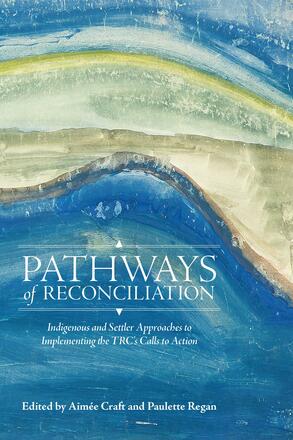
Pathways of Reconciliation
Indigenous and Settler Approaches to Implementing the TRC's Calls to Action
Description
The essays in Pathways of Reconciliation address the themes of reframing, learning and healing, researching, and living. They engage with different approaches to reconciliation (within a variety of reconciliation frameworks, either explicit or implicit) and illustrate the complexities of the reconciliation process itself. They canvas multiple and varied pathways of reconciliation, from Indigenous and non-Indigenous perspectives, reflecting a diversity of approaches to the mandate given to all Canadians by the TRC with its Calls to Action.
Reviews
"I walk away from this book with a much clearer understanding of reconciliation as a process with UNDRIP as its foundation, and with a deeper knowledge of several 'truths' underpinning Indigenous-settler relations in a variety of Canadian contexts."
- Victoria Paraschak
"This volume has something to offer all readers—Indigenous and non-Indigenous—and from every field from natural resources to child and family services, and from healthcare to academia. The lessons that the authors share in this volume can help us all take on the work of meaningful reconciliation."
- Richel Donaldson
"The essays in this book are informative, insightful, and well written. As they outline the scope of what needs to change, their mix of case studies, theoretical reflection, and empirical analyses offers some signs of hope and constructive examples of what can be done. This book deserves to be widely read. It will be useful for academics, community leaders, and educated readers concerned about how to respond to the Truth and Reconciliation Commission of Canada’s Calls to Action."
- Don Schweitzer